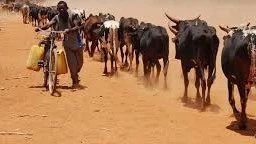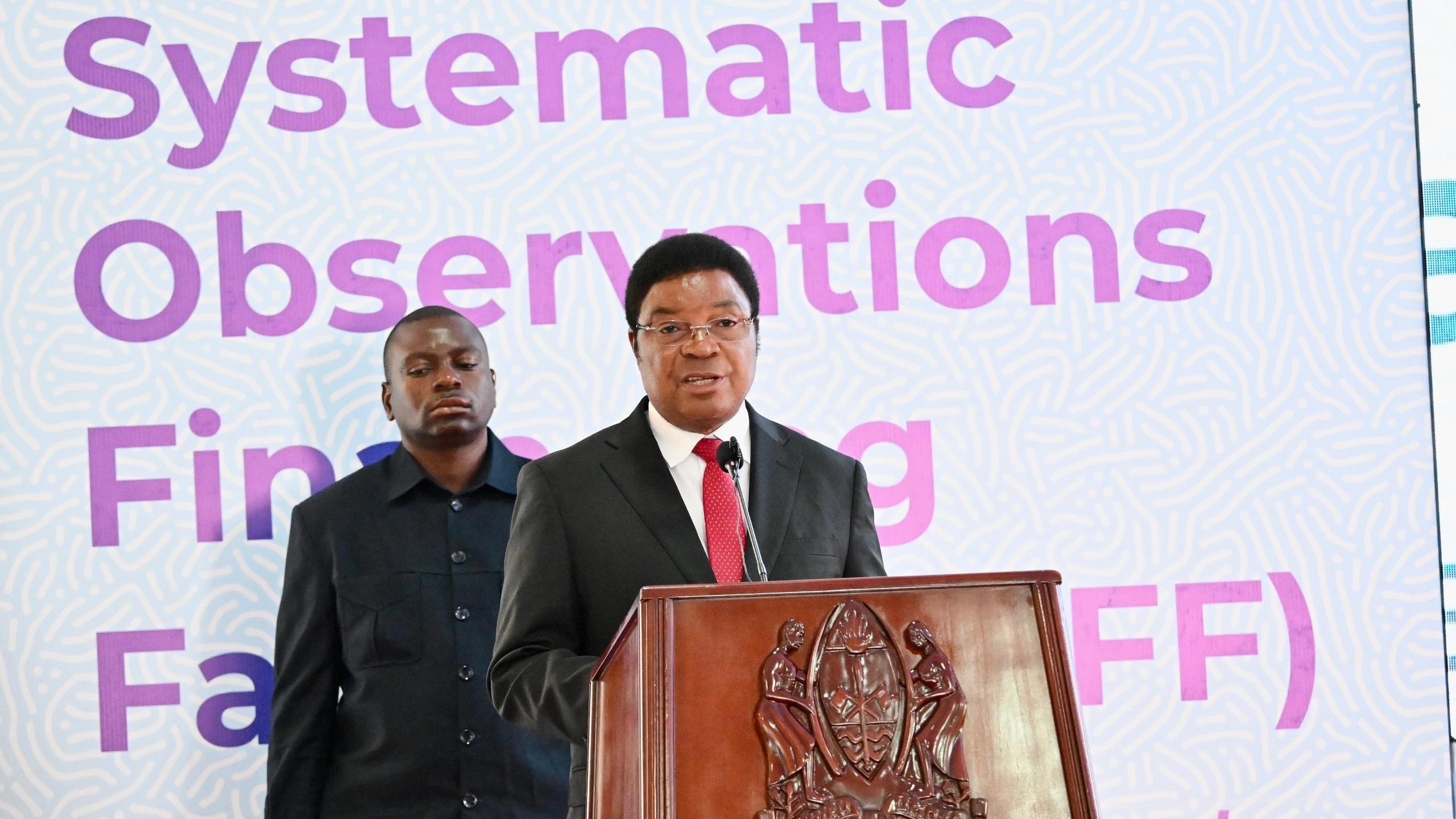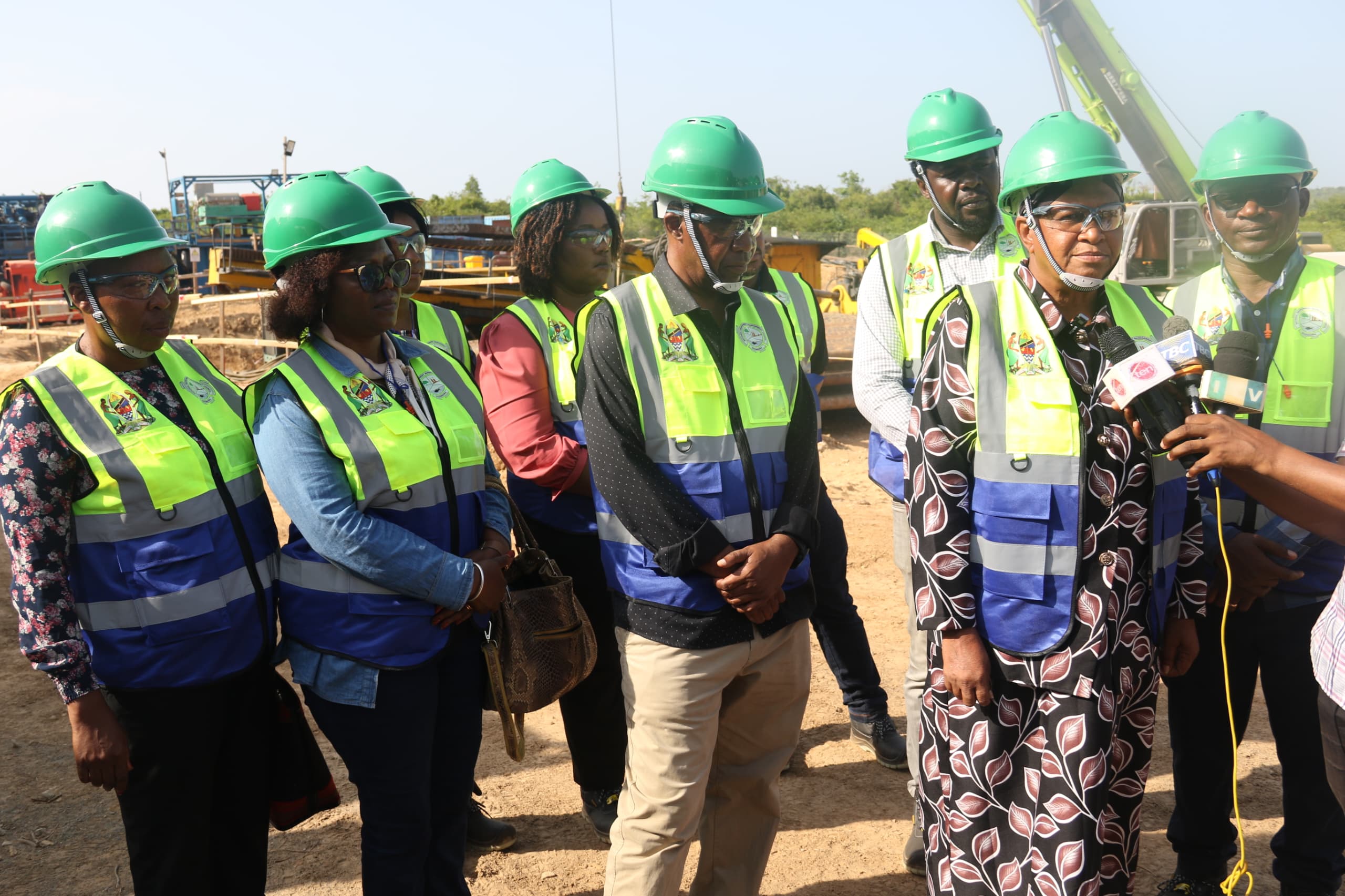Building on BoT’s bold move: Need to expand climate action across industries

COULD you imagine a Tanzania plagued by severe droughts, where food security is threatened, water scarcity escalates, and health crises soar? Now, picture the ripple effects on businesses: disrupted supply chains, declining performance, and economic instability. Alarming, isn’t it?
The Bank of Tanzania (BoT) has envisioned this scenario and taken bold preventive action. In a ground-breaking move, the central bank has introduced two transformative guidelines mandating banks and financial institutions to integrate sustainability and climate risk into their reporting frameworks.
This visionary leadership isn’t just about safeguarding the financial sector—it’s about protecting Tanzania’s future.
Climate change is no longer a distant threat—it’s a present reality with profound implications for every facet of life. Severe weather events, such as the floods in Rufiji, have disrupted lives, damaged infrastructure, and affected the local economy.
Businesses, economies, and societies are intricately linked to the environment, ignoring sustainability and climate risks can lead to cascading challenges.
Here’s why aligning sectors with sustainability and climate resilience is not just important but essential:
Safeguarding business continuity
Extreme weather events such as floods, droughts, and heatwaves, directly impact industries by disrupting supply chains, damaging infrastructure, and reducing productivity. For example, agriculture-based businesses face declining yields during prolonged droughts, while floods can wipe out transportation networks critical for trade.
By integrating sustainability and climate risk measures, businesses can anticipate and mitigate these disruptions, ensuring resilience and long-term viability.
Fostering economic stability
A climate-resilient economy is a stable economy. Climate risks like resource depletion and increased energy costs can destabilize markets, drive inflation, and reduce investor confidence. By embedding climate-conscious practices into policies, such as promoting renewable energy and green innovations,
Tanzania can attract investments, create jobs, and unlock economic growth. Sustainable practices also ensure equitable resource allocation, reducing economic inequalities exacerbated by climate impacts.
Protecting livelihoods, social welfare
Ignoring sustainability has immense social consequences. Droughts lead to food insecurity, water shortages trigger health crises, and climate migration disrupts communities. These challenges hit the most vulnerable populations hardest, amplifying poverty and inequality.
When businesses and institutions prioritize sustainability, they contribute to societal resilience—ensuring communities have access to essential resources, healthcare, and growth opportunities despite climate challenges.
Enhancing global competitiveness
Globally, the transition to sustainable practices is accelerating. Investors, customers, and partners increasingly favor organizations that demonstrate climate responsibility. Tanzanian businesses adopting sustainability measures will gain a competitive edge, attracting global partnerships, funding, and market opportunities. This positions Tanzania as a leader in sustainable development across Africa.
Addressing regulatory, financial risks
Failing to align with sustainability exposes organizations to regulatory penalties, reputational damage, and financial losses. The BOT’s guidelines proactively shield the financial sector from climate-related risks, ensuring long-term stability. Other sectors, such as insurance, telecommunications, and manufacturing, must follow suit to mitigate sector-specific risks and avoid falling behind.
Contributing to Tanzania’s climate goals
Sustainability is central to Tanzania’s development agenda. Integrating climate risks into strategies supports national and global commitments like the Paris Agreement and the United Nations Sustainable Development Goals (SDGs). Collective action ensures economic growth does not come at the expense of the environment.
Here’s how regulatory authorities in Tanzania can follow the central banks’ lead in mandating sustainability and climate risk measures:
Tanzania Revenue Authority (TRA)
TRA administers and collects government revenues to support national development. Climate risks like floods and droughts reduce business activity, shrinking taxable income and lowering tax revenues.
TRA can offer tax incentives for businesses adopting sustainability practices, such as renewable energy usage and waste reduction, enhancing resilience and ensuring long-term revenue stability.
Energy and Water Utilities Regulatory Authority (EWURA)
EWURA regulates electricity, water, petroleum, and natural gas sectors to ensure reliable services. Prolonged droughts reduce hydropower capacity, while floods damage critical infrastructure. EWURA can mandate investments in climate-resilient infrastructure, promote renewable energy adoption, and encourage water conservation technologies to ensure sustainable service delivery.
Tanzania Medicines and Medical Devices Authority (TMDA)
The TMDA safeguards public health by regulating medicines, medical devices, and food safety. Climate change escalates health risks through the spread of diseases and food insecurity. TMDA can require pharmaceutical manufacturers to adopt eco-friendly production processes and ensure resilient medical supply chains, maintaining public health while reducing environmental impacts.
Fair Competition Commission (FCC)
The FCC ensures fair trade practices and consumer protection. Supply chain disruptions caused by floods or droughts can lead to market imbalances. FCC can promote sustainable practices like energy efficiency and waste reduction while supporting environmentally responsible companies through fair competition laws.
Tanzania Communications Regulatory Authority (TCRA)
TCRA regulates communication and broadcasting sectors. Rising temperatures and extreme weather threaten telecommunication infrastructure. TCRA can mandate energy-efficient technologies, encourage investments in climate-resilient infrastructure, and promote digital solutions like early warning systems to enhance climate preparedness.
Occupational Safety and Health Authority (OSHA)
OSHA enforces workplace health and safety standards. Climate risks such as extreme heat, air pollution, and flooding endanger workers’ safety. OSHA can develop climate-specific occupational health guidelines, encourage green workplace practices, and promote training on climate risk management to protect workers and maintain sustainability.
National Environment Management Council (NEMC)
NEMC ensures environmental protection and sustainable practices. Climate change exacerbates degradation, threatening livelihoods and ecosystems. NEMC can enhance policy enforcement, encourage industries to adopt sustainable practices, and align guidelines with global climate goals to build resilience.
Land Transport Regulatory Authority (LATRA)
LATRA regulates land transport services, ensuring efficiency, safety, and accessibility. Climate risks like floods damage road and railway infrastructure, leading to transport disruptions that hinder economic activities and emergency response. LATRA can encourage the adoption of green transport systems, such as electric vehicles and sustainable road designs while mandating climate risk assessments in infrastructure planning to safeguard Tanzania’s transport sector against climate challenges.
Tanzania Ports Authority (TPA)
TPA manages and oversees port services, ensuring the smooth flow of goods and trade through Tanzania's ports. Rising sea levels, storm surges, and extreme weather events threaten port infrastructure and disrupt maritime logistics. TPA can adopt sustainability practices by investing in climate-resilient port designs, integrating renewable energy sources, and establishing early warning systems to mitigate risks. Encouraging eco-friendly shipping practices can also reduce emissions and safeguard Tanzania’s role as a regional trade hub.
Tanzania National Parks (TANAPA)
TANAPA manages Tanzania’s national parks and conserves wildlife for ecological balance and tourism. Climate change threatens biodiversity through habitat loss, changes in species migration patterns, and increased risks of wildfires.
The authority can integrate climate risk assessments into park management, promote reforestation initiatives, and educate communities about sustainable conservation practices. Additionally, it can encourage eco-tourism to ensure that tourism remains a sustainable source of income while protecting natural resources.
Leading Tanzania into a sustainable future
The message is clear: climate change spares no sector. From the roads we drive on to the ports enabling trade, from parks preserving heritage to communication networks connecting us, every corner of the economy is intertwined with the environment. By embracing sustainability and climate resilience, we protect what we have and create pathways to innovation, growth, and harmony.
The central bank has shown what bold leadership looks like. Now, it’s time for every regulatory authority—TRA, EWURA, TMDA, FCC, TCRA, OSHA, NEMC, LATRA, TPA, TANAPA and beyond—to rise to the occasion.
Together, we can guide Tanzania toward a future where businesses thrive, ecosystems flourish, and livelihoods are secured.
Action starts with vision. Vision turns into impact when leaders dare to act. Will your sector lead the change? The time to act is now, and the world is watching. Let’s make Tanzania a global example of resilience and sustainability—one regulation, one initiative, one bold step at a time.
Frank Abel is a Senior Programme Accountant at Amref Health Africa Tanzania and one of the stakeholders of sustainable development with more focus on the effects of climate change. He can be reached via +255 753 732 355.
Top Headlines
© 2025 IPPMEDIA.COM. ALL RIGHTS RESERVED

























